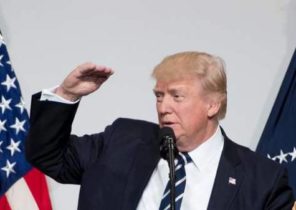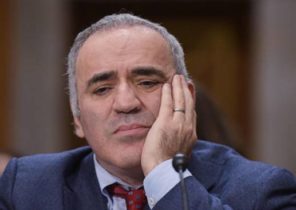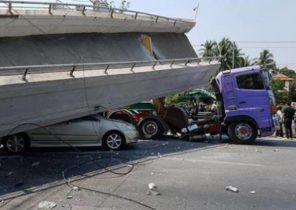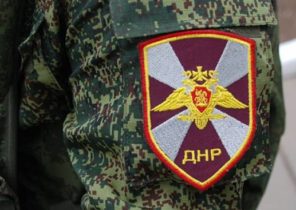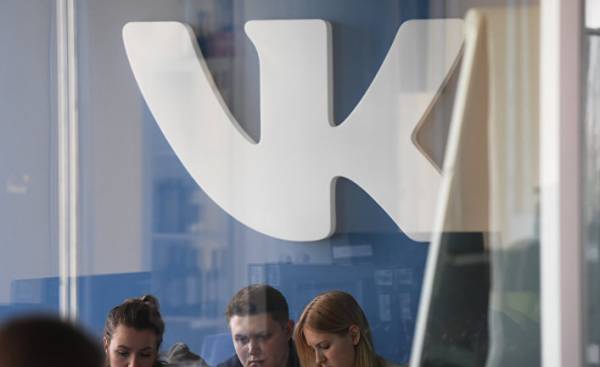
“This endogenization President Poroshenko”, — said one. “This is the biggest contribution of all time to protect our sovereignty in the information space,” say others. The stage on which unfolds the debate — Ukraine. The subject of the dispute is the recent decision of the National Council for security and defense and of the President of Petro Poroshenko block in the war against the Russian invasion in the East of the country some of the most important Russian Internet sites, such as social networks Vkontakte and Odnoklassniki, as well as search engine Yandex. They are the most popular Internet sites in the country and distributed in many times more than Facebook. 78% of all Ukrainian Internet users, about 20 million people still were in the network Vkontakte.
The dispute about the embargo (on the technical capability of which specialists have, among other things, different views) has one striking aspect, and one less striking. Less striking is the alignment of arguments. Some, such as the Deputy and investigative journalist Serhiy Leshchenko (the expression “endogenization” belongs to him), don’t want to believe that this lock really applies only to the government’s fight against Russian propaganda and cyber war. Leshchenko sees here in the greater bold attempt to deprive the Ukrainian civil society of its most important means of communication — a step toward “authoritarianism” of the Chinese or North Korean style, “to information. which shows the true face of this power is revealed to people. So people took to protests and corruption to remain in power.”
On the other side are those in which the containment of Russia in the information war seems to be the main imperative of this hour. These include the head of the anti-Russia opposition faction “Samopomich” in Parliament, Oleh bereziuk. Although his party is literally the bones of Poroshenko, whom she considered corrupt and too hostile towards Russia, bereziuk defended the blocking of websites. To endure in the “heart of nation” an instrument of ideological influence of the enemy — and this at a time when the war — is simply “crime”, he said. “Howl” about the recent bans it, according to him, can not understand.
More striking than this not so awesome question is “freedom or security” is, however, how exactly is this dividing line. Because we are not talking about what “the government” opposes “civil society”, like many other topics in the Ukraine, for example, when it comes to corruption or the influence of the oligarchs. The front line runs this time rather in the middle of the sphere of non-governmental organizations and associations for the protection of human rights. Presumably the most part — among them Human Rights Watch, “reporters without borders” or Freedom House — on the side of the fighters for the freedom of speech. They are supported by activists who point to the fact that the network Vkontakte in war-torn Eastern Ukraine is indispensable, for only on this website jacked up people can find out where the next day will be to distribute humanitarian aid. Others, such as representatives of the Union of Bellingcat investigation, telling the press that lock is one “of the biggest nonsense ever committed by Poroshenko” at least because of the Russian Facebook analog Vkontakte for critics of the Russian intervention is an indispensable source of information. Without the countless posts of Russian soldiers in this network it would, for example, it is impossible to highlight the role of Russia in the Ukrainian war or the firing of the Malaysian passenger plane MH17 in 2014.
The other side of which belongs to the founder of the community “Stopfen” Yevhen Fedchenko, the author of the statement about the “defense of sovereignty in cyberspace”, indicates that blocked Russian search engines and social networking only at first glance are a platform for free communication. Upon closer examination they are integral elements of the Russian war. How is this argument, wrote a few days ago, the Internet newspaper “Ukrainian truth”, which is usually quite critical of the government of the Russian legislation, says here, obliges the operators of social networks or search engines to download data of their users on Russian territory and to provide them on demand at the disposal of the Executive. Because of the already powerful information networks Vkontakte and Odnoklassniki still owned by Alisher Usmanov, Russian oligarch of Putin’s entourage, according to this reasoning, every Ukrainian Internet user becomes helpless and pitiful victim, a catch Russian Internet fleet.
If, for example, Ukrainian added to your phone app of these networks, the Russian secret service may at any time to localize it. She can see his pictures and read his correspondence, and it can look for “dirt” — aggravating material for possible blackmail. One representative of the Ukrainian security Council pointed out, furthermore, that Russia is on the cards search engines Yandex (comparable to Google Maps) at any time to examine the situation on the roads of Ukraine: “whoever is planning an attack… that one can hardly imagine any better situation.”
Here are the arguments of both sides, and the split was not only Ukrainian community, but also the West. On the one hand, the Secretary General of the Council of Europe Thorbjorn Jagland (Thorbjørn Jagland) stood at the head of the critics: the blockade, he said, “contrary to our common understanding of freedom of speech and the media.” However, those in the West who work more are dealing with military threats than with human rights, sometimes see it differently. “The Ukrainian truth” in any case, quotes one opinion of NATO, obtained through official channels, upon request. It States that, as a block the Internet takes the Ukrainian government, it is not about “freedom of speech”, and on the issues of “security”. Hopefully, the message that Kiev will fulfill its international obligations, and that the system of Checks and Balances will work.
